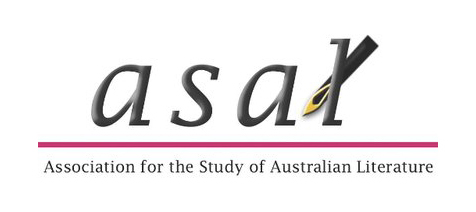
A.D. Hope Prize
The A.D. Hope Prize is awarded annually for the paper judged to be the best paper delivered by a postgraduate student. The winner must be a member of ASAL who presented at the July annual conference (July ASAL conference or July Literary Convention). The paper is to be sent to the judging panel, in publishable form, after the conference (date to be announced each year). The winning paper will be afforded the opportunity of publication in JASAL and the winner will receive $500.
A.D. Hope Prize
Submissions for the A.D. Hope prize are now invited.
The A.D. Hope Prize is awarded to the best essay based on a paper presented by a postgraduate ASAL member at the 2023 ASAL conference. The essay judged the winner of the A.D. Hope Prize will also be considered for publication in the peer-reviewed Journal of the Association for the Study of Australian Literature (JASAL).
The essay must be a substantial re-writing/expansion of the conference paper. (Conference papers will NOT be accepted). It should be the length of 4500-6000 words and be formatted in JASAL house-style.
The deadline for submissions to the A.D. Hope prize is 24th November 2023. Please send your essay directly to BOTH the Chair of the judging panel, Dr. Julieanne Lamond AND Professor Tanya Dalziell
Please forward any queries to Professor Tanya Dalziell
The winner of the 2023 A.D. Hope prize
Kyle Kohinga: ”Soil is a Toil Needing All to Recoil’: Lionel Fogarty, Andrew Forrest, and the Settler-Colonial Georgic.
Highly commended
Alice Bellette: ‘White Nativity’: Reinscribing Aboriginal Land in the poetry of Araluen and Whittaker
A.D. Hope Prize
ASAL postgraduates are warmly invited to submit an essay for the A.D. Hope prize.
The A.D. Hope Prize is awarded to the best essay based on a paper presented by a postgraduate ASAL member at the 2022 ASAL conference. The essay judged the winner of the A.D. Hope Prize will also be considered for publication in the peer-reviewed Journal of the Association for the Study of Australian Literature (JASAL).
The essay you submit must be a substantial re-writing/expansion of your conference paper. (Conference papers will NOT be accepted). It should be the length of 4500-6000 words and be formatted in JASAL house-style.
The deadline for submissions to the A.D. Hope prize is 1 December 2022.
Please send your essay by email directly to the Chair of the judging panel, Associate Professor Fiona Morrison, and feel free to forward any questions to the ASAL Prize Coordinator, Professor Tanya Dalziell.
2022 Winner
Samuel Cox for a fascinating and provocative reading of Patrick White’s Voss
2021 Winner
Annelise Roberts, for ‘Knowing This Country’: Confronting the Nuclear Uncanny in Aboriginal Life Writing.
Alice Grundy and Karl Ricker’s essays for the A.D. Hope Award receive high commendations.
2020 (no prize awarded)
2019 Winner: Louis Klee for “Exile Translatable and Untranslatable”. Louis is a PhD candidate in Criticism and Culture at Gonville & Caius College, the University of Cambridge.
This paper is a sophisticated and sensitive reading of Said’s photo-essay After the Last Sky and its contexts. It explores the politics of the dialogue between image and text, and the ‘inside outside’ dialectic set up and destabilised within it. It offers some persuasive comparisons across genres.
I am text block. Click edit button to change this text. Lorem ipsum dolor sit amet, consectetur adipiscing elit. Ut elit tellus, luctus nec ullamcorper mattis, pulvinar dapibus leo.
More Information:
Previous Winners
2018 Valérie-Anne Belleflamme “Moving on metaphorical silk roads of intellectual trade”: Chinese aesthetics in Gail Jones’s Five Bells” – from CEREP Postcolonial Research Centre, English Department, University of Liège, Belgium
2017 Jonathan Dunk “Jacky Alone: The Explorer Myth and the Politics of Aboriginal Authorship”
2016 Shaun Bell “but even memory is fiction’: The
(fictional) Life and (self) Writing of Sumner Locke Elliott”
2014 Caroline Williamson “Beyond generation green: Jill Jones and the ecopoetic process”
2012 Michael Farrell ”Unsettling the Field: Christopher Brennan and Biodiversity”
2009 Duncan Hose “Instructions for an ideal Australian: John Forbes’s poetry of metaphysical etiquette”
2008 Scott Brewer ‘”A Peculiar Aesthetic”: Julia Leigh’s The Hunter and Sublime Loss’
2007 Joanne Jones “Dancing the Old Enlightenment” and Ben Miller “David Unaipon’s style of subversion” JASAL (Special Issue 2008)
2006 Julieanne Lamond “The Ghost of Dad Rudd: On the Stump” JASAL (2007)
2005 Catriona Ross “Prolonged Symptoms of Cultural Anxiety: The Persistence of Narratives of Asian Invasion within Multicultural Australia” JASAL 5 (2006)
2004 Sandra Knowles “The Not Quite Real Miles Franklin: Diaries as Performance” JASAL 4 (2005)

